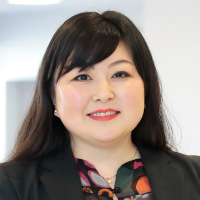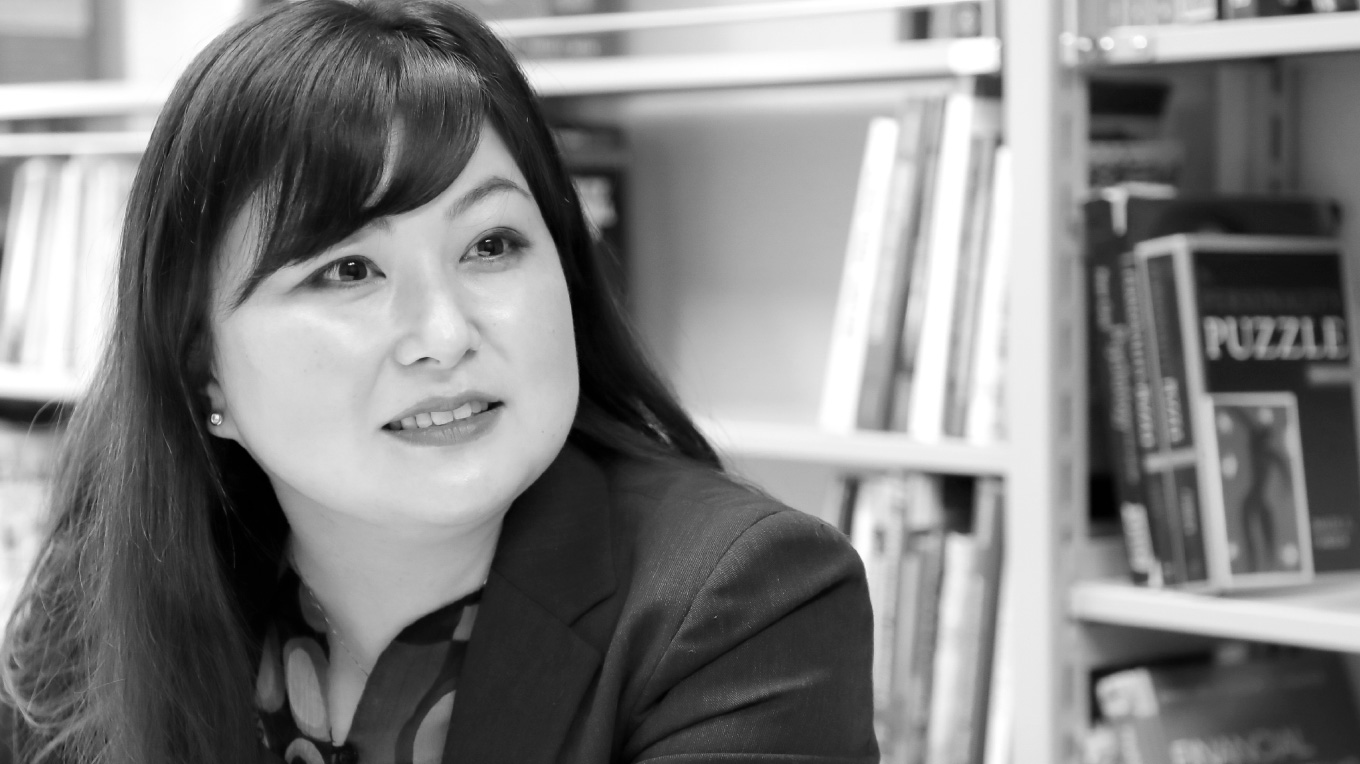International Economics
Using Economics to Predict the Next Action of People and Nations

YANE HarukaAssociate Professor,
College of International Relations
Behind Every Action Is an
Invisible Cost: “Opportunity Cost”
What do you mean by “predicting behavior using economics?”
YaneSome people may think economics is the study of money. But that is not the case. Economics is the science of decision making. It tries to predict a person’s next action by exploring why the person made a particular action. You could say that economics is a discipline that tries to explain all human behavior.
On the back of your health insurance card, there is a space to indicate whether or not you are willing to be an organ donor. Those who are willing to donate should circle and sign. In economics, organ donation is free, so people are reluctant to take action, and supply is therefore insufficient. So, what happens when a price is put on organs? What about making it so that only people who don’t want to donate should sign? In economics, we consider such questions using various concepts related to human decision makings, such as supply and demand incentive and status quo bias.
From the viewpoint of human rights and morals, the current way of doing things may be right. However, on the flip side of the “right” idea that organs should be provided for free, is it not also true that there is also the disadvantage of not being able to receive a transplant due to a shortage of supply? In economics, the value you lose by not choosing something is called opportunity cost. The idea that every action involves an invisible cost called opportunity cost differs slightly from common sense. That is also the fascinating thing about economics.
In today’s global society, economics is already embedded in international relations. From a macro perspective, people building relationships through the accumulation of individual decisions and actions overlaps with the process of building relationships between countries. Economics is a useful tool in the field of international relations, which examines the relationships between countries. If you are interested in human behavior and human relationships, I think you will be interested in economics as well as international relations.
Becoming a Researcher Following Experiences at
University of Florida Public Utility Research Center and OECD
Could you tell us about your research?
YaneMy research theme is international trade and labor markets. In recent years, the international division of labor in the production process of goods and services, known as global value chains (GVC), has been advancing, and forms of trade have also evolved. My research examines how this affects workers’ wages, unemployment, and demand in each country and region. The impact of GVC progress on the labor market is not simple. It varies depending on the country and the skill level of individual workers. I try to make measurements and predictions that are more in line with the current situation through two methods: using econometrics to estimate the relationship between variables as well as modelling the world and carrying out simulations. I hope that the results of this research will be used as policy recommendations in the future to improve the labor environment in developing countries and to provide a basis for consideration for the conclusion of international regional cooperation agreements in Japan.

So, you have studied and worked in both Japan and the United States?
YaneI was born in Japan, spent my childhood years in the United States, and came back to Japan when I was a junior high school student. I studied at an international department of a Japanese university, but when I was looking for a job, I couldn’t get a job offer even though I applied for 100 companies. So, I gave up trying to find a job in Japan and worked for a year at the University of Florida’s Public Utility Research Center in the United States. It is a research institute that makes research and policy recommendations on public utilities jointly with the World Bank. There, I came into contact with many economists and became fascinated with economics, which led me to enter graduate school.
What inspired me to become a researcher was going to the Organisation for Economic Co-operation and Development (OECD) for an internship in my first semester. It was an environment I could carry out research freely while discussing with people from various countries. My failure to find a job led me to become interested in the differences between labor markets in various countries, so I began to want to do research involving labor market issues in international trade, which was my theme at the time, and decided to go on to the second semester. After completing the course, I worked at the Japan Center for Economic Research (JCER) in the field of economic forecasting, which was a valuable experience that led to my current research. My current circumstances are a result of taking action towards what I found interesting at the time in my journey up until now.
Freely Combining Interests with University Studies
Unique Ideas of International Relations Students
What does your seminar cover? What image do you have of students of the College of International Relations?
YaneStudents are free to choose their own research themes in my seminar. Anything is welcome. Data analysis is performed using the statistical software R. The themes of my seminar participants are truly diverse, including U.S.-China relations, environmental issues, cryptocurrency, technology, and more.
I feel that many students in the College of International Relations—not only my seminar students but both Global Studies and International Relations—expand their learning independently. I was surprised to see students combining their undergraduate studies with a completely different field of interest to submit very unique results. I am sure they are figuring things out and making an effort in their own way.
What I would like to say to all students, however, is not to be bound by such big dreams as getting a job at a big company or becoming a diplomat. If you have been working hard to achieve your goals, but you feel that it is not what you want to do, don’t hesitate to try something else that you like. You may think it’s a waste of the time and effort you’ve put into it. However, let me tell you that in the world of economics, this is what is known as a “sunk cost” that cannot be recovered, and that it should not be used as a basis for judgment.
For Those Interested in International Economics:BOOKS
Russell Roberts
The Invisible Heart: An Economic Romance
The MIT Press (2002)
Steven David Levitt, Stephen J Dubne
Freakonomics: A Rogue Economist Explores the Hidden Side of Everything
William Morrow Paperbacks (2009)
Daniel Kahneman
Thinking, Fast and Slow
Farrar, Straus and Giroux (2011)
For Those Interested in International: MOVIES
Movie
Seven Samurai
1954, Japan
Movie
It's a Wonderful Life
1946, United States
Movie
Moneyball
2011, United States